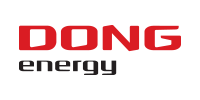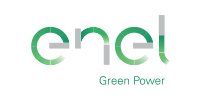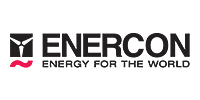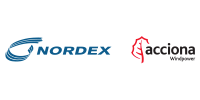14:30 - 16:00 Yes in my back yard! Maximising social acceptance
Environmental impacts & social acceptance

Room: C 2.2
The session will present various measures to support and maximise social acceptance. It will have four presentations: exploring engagement measures with local communities; research into effective involvement; real-life experience of successful approaches to social acceptance; and specific examples and case studies.
Finally, the session will conclude with WISE Power project announcing the winner of the Best Community Project Award for outstanding commitment to local people in a European wind energy project, which the winner will then present.
You attended this session?
Learning objectives
- List and explain the most appropriate measures to maximise social acceptance;
- Identify concerns and issues from local residents;
- Explain the importance of social acceptances strategies and community engagement.

Presenter

Co-authors:
Rahel Jones (1) F Catrin Ellis Jones (1)
(1) Vattenfall, Cardiff, United Kingdom
Presenter's biography
Biographies are supplied directly by presenters at WindEurope Summit 2016 and are published here uneditedRahel Jones is currently Vattenfall’s Project Communication Team Leader for Business Area Wind in the UK. She has ten years’ experience working in the field of sustainable development and renewable energy, having been part of the Secretariat of the UK Sustainable Development Commission before joining Nuon Renewables and then Vattenfall. Rahel studied music at Oxford University, and following a spell delivering education she went on to gain a Masters in Political Communication from Cardiff University.
Together Rahel Jones and Catrin Ellis Jones have developed a highly inclusive approach to the design and delivery of community and stakeholder engagement, first at the Pen y Cymoedd Wind Energy Project and then rolling out the learning to other UK Wind projects.
Abstract
Delivering sustainable energy, not just renewable
Introduction
The core resource harnessed in a renewable energy project is naturally, sustainable. Do we as developers rely on that being “enough” to win a licence to operate? As we transition to a future where the planet’s population will need to learn to “do” renewable energy – more and better, what lessons can the wind industry learn in order to do renewable energy more sustainably ?
Approach
Reflecting on experiences of developing Vattenfall’s Pen y Cymoedd Project, 228MW installed capacity, located in the former heartland of the South Wales Coalfield, we ask: is this development “Good enough”? What can we do better? What critical success factors will deliver sustainable energy developments for a new world?
Main body of abstract
What outcomes will signify we are delivering Sustainability and [Corporate] Social Responsibility in wind energy? Both, in our view require us to deliver:
• Security of supply
• Cost and resource efficiency
• Benefits for the planet and it’s people
During the design and scoping phase of Pen y Cymoedd Wind Energy Project, right through to today, when construction is well underway, we have worked closely with local communities and stakeholders, involving our neighbours and local experts, in decision-making. Inviting dialogue and collaboration from very early stages in the project we believe has made decision-making more robust, and has led to an enhanced project, where many opportunities are embraced, and risks identified early. Utilities-scale wind projects are dynamic and complex additions to the local and regional landscape and with lifetimes potentially extending over decades, they represent opportunities to change the local environmental, social and economic landscape for the better, now and for future generations. Nevertheless it is still a challenge for wind experts, with our sharp focus on the efficient delivery of renewable energy , to optimise this potential for incremental or transformational change. Appropriate and effective engagement is a pre-requisite for a holistic, sustainable development, which deploys systems thinking throughout, and for that we need to be open and co-operative.
Conclusion
Renewable energy projects can be exemplars of sustainable development. We’re moving that way.
Learning objectives
We’d like to share with you an exploration of our successes and areas where there are room for improvements. We'll discuss how effective and inclusive engagement processes and environmental and socio-economic value-chain development, can ensure that a wind farm development becomes a productive part of the local landscape, and in turn, helps drive sustainable development.





Follow EWEA on: